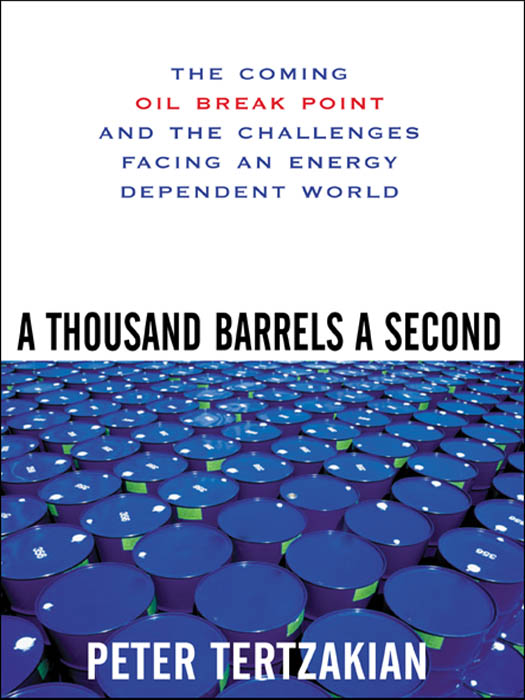
A Thousand Barrels a Second
The Coming Oil Break Point and the Challenges Facing an Energy Dependent World
کتاب های مرتبط
- اطلاعات
- نقد و بررسی
- دیدگاه کاربران
نقد و بررسی

January 30, 2006
Though written by an energy industry investment analyst and intended primarily for investors, this book makes a convincing, layreader-friendly case that the end of oil is nigh and it's time to get serious about energy alternatives now that the world is at "the dawn of a new energy age" that will pit the U.S. against China in the struggle for oil. Tertzakian provides an excellent primer on oil's history, uses, supply chains and politics, including dozens of charts and graphs to illustrate the bleak outlook for oil's future. The future of energy, Tertzakian advises, is an amalgamation of increasing dependence on alternative fuels (biofuel, nuclear and green sources) and conservation. He admits conservation is a tough sell for big earners who will be able to afford the $4 per gallon gasoline will inevitably cost, but he notes in the same breath that low- and moderate-income earners and energy inefficient industries will suffer the most. His analyses of energy consumption cycles and their breakpoints and rebalancing periods (when a fossil fuel becomes too expensive or difficult to obtain and society must change sources to maintain its economy) lend factual heft to his outlook. Though the author neglects significant facts-such as the influence of the CIA in the fall of Mossadegh in Iran and the threat of global warming-the book should be required reading for policymakers.

February 15, 2006
Economist Tertzakian (director, ARC Financial Corp.) paints a grim picture of the current state of energy in the world, providing ample historical context and raising important questions about energy use in the past, present, and future. The author refreshingly reminds us that there is still plenty of oil in the ground, but it -s getting harder to access. His discussion of energy supply chains is illuminating as he makes the case that a -break point - in the system is inevitable and could cause an energy crisis. While much of what Tertzakian states is not new (e.g., the need to conserve energy resources and embrace new energy solutions), he reminds us how technology using hydrogen and other -renewable - resources might help fill the resource gap. He also points out that although the United States has long been the number one energy-using country, China may soon overtake us, with geopolitical implications; Russia may prove a more powerful energy supplier than any of the Middle Eastern countries in the future. Being an economist, Tertzakian provides a great deal of data, which may overwhelm the reader, but there is no mistaking his point that -our birthright of abundant, reliable energy is coming to an end - and that our energy options are rapidly dwindling. Highly recommended for all public libraries and business collections." -Richard Drezen, Washington Post", New York City Bureau
Copyright 2006 Library Journal, LLC Used with permission.

February 15, 2006
The coming "break point" Tertzakian describes--more a period than a moment, really--is the next 5 to 10 years, during which rising oil prices and market volatility will force structural changes in how we extract and expend energy. Both a chronicle of previous break points and their consequences--including the shifts from whale oil to kerosene lighting, coal- to oil-fueled navies, and steam to electric engines--and a carefully considered economic analysis of our present conundrum, this book offers no magic-bullet solution to the increasingly uncomfortable primacy of petroleum as the world's fuel of choice. Nor is it as alarmist as its title suggests, although Tertzakian harbors no illusions about the discomfort the next decades will bring. Rather, his cost-benefit analysis points toward pursuing a plurality of minor incremental solutions (mostly familiar, like smaller cars and biodiesel) as the next major fuel source (sorry, probably not hydrogen) emerges. Refreshingly measured and pragmatic, this account also is illuminating as a quick historical primer of the oil industry.(Reprinted with permission of Booklist, copyright 2006, American Library Association.)

























دیدگاه کاربران